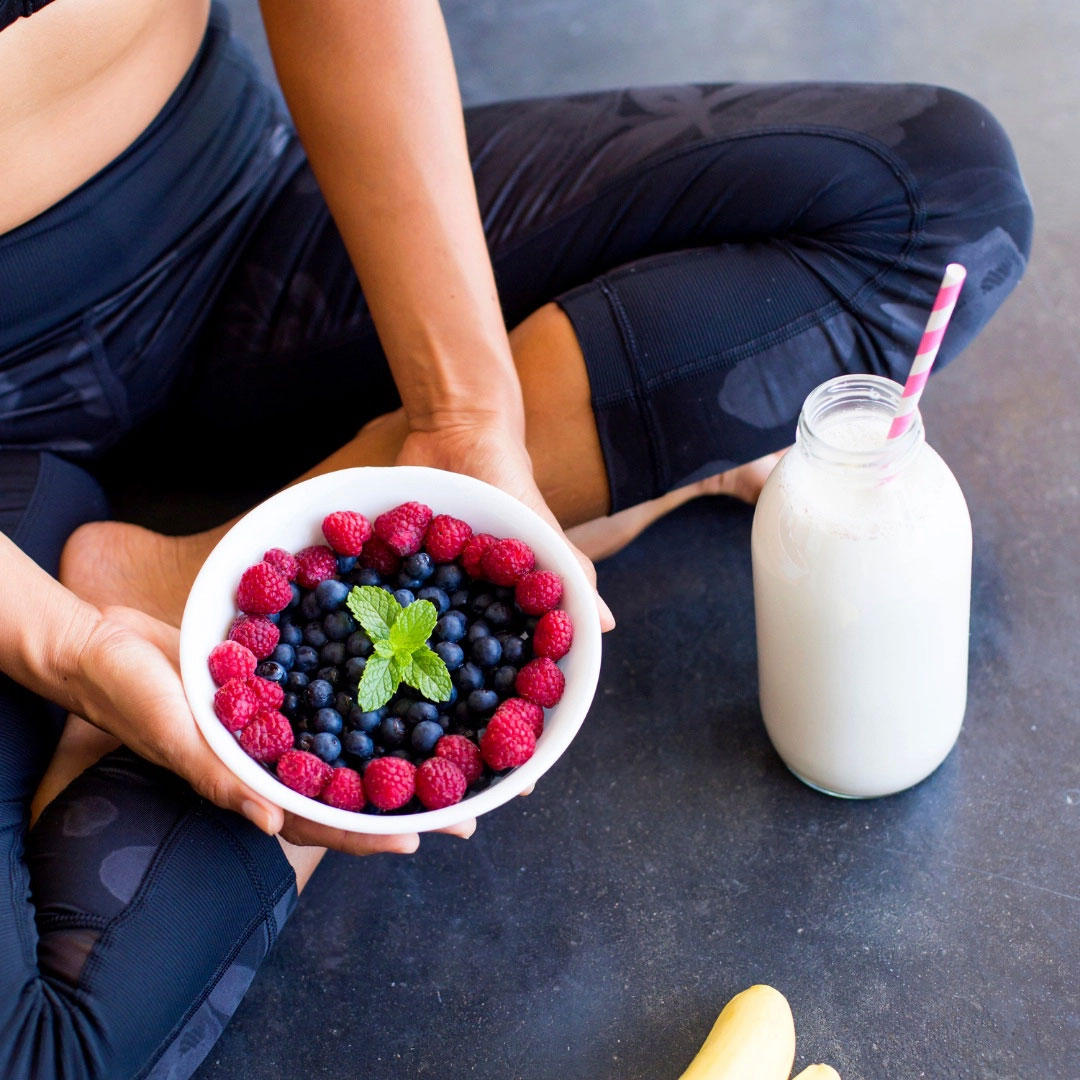Introduction: Better Exercise
Is there a connection between eating and exercising better? Hmmm… good question! With all the misinformation floating around on google, and social media, it’s kinda hard to know what’s true and what’s a bunch of crap. I get it, I’m confused sometimes too — and I’m in the healthcare biz. However, eating for better exercise is something you can easily do and add to your daily routine. Read on to get all the deets so you can make this your new habit.
Should I Eat Before I Workout?

Most will benefit from a pre-workout meal or snack that is 30-minutes to 2 hours prior to your workout. Meals closer to your workout should be smaller and mostly carbohydrates. Meals farther from exercise can be larger, and more nutrient-balanced meals.
A review of several studies found that 54% of the studies reported those exercising for longer than 1 hour had improved performance if they ate before exercising.
Like fasted exercise? That can be OK depending on your goals (metabolic health vs gaining muscle, endurance vs. high intensity). A recent study of 273 participants found that fat burning was higher in those fasting before a workout. Glucose and insulin levels were found to be higher in people that didn’t fast before exercise.
Ok, should you eat before a workout or not? Your best bet is to talk with a nutrition pro for help with optimizing your sports nutrition routine for better exercise.
What About Eating After A Workout?

Want to get the most benefits from your workout? Eating/sipping nutrients within 1 hour after exercise is important, ideally within 30 minutes. The intensity of your exercise, the timing (how close to bedtime, etc.), your health goals, and your body’s recovery needs will impact the nutrient recommendations for “better” post-workout meals.
Good Hydration is important too
Water helps the body do its work moving nutrients around and eliminating toxins. Are you getting in your better water amount? There is no perfect number when it comes to health, nutrition, and likewise, your daily water intake, but you can find your better water range and it starts here:
To determine your better water starting number: Weight in pounds / 2 = ounces of water/day.
Add 10-15 ounces on any day you exercise for more than 20 minutes.
But beware of the signs you may be dehydrated! Certain signs of dehydration come in disguise! If you are having things like fatigue, hunger, or cravings, drink a glass of water and wait 5 minutes — was your body using thirst to get your attention.
Dry skin, dark yellow urine, headaches, constipation – these are signs that your body needs some more water too so drink up.
Do I Need More Protein If I Exercise
Protein is super important, it is literally used in every single cell in the body! It supports metabolism, blood sugar regulation, weight management, muscles, energy, mood, immunity, cardiovascular function, hormone production, and more.
As amazing as protein is for us – too much of anything is, well, too much! Excess protein overwhelms the body — and nobody wants to be overwhelmed! Let’s assess your protein intake: are you making better – not perfect – protein choices more often so your body has the resources it needs?
There is no one perfect number when it comes to health, nutrition, and likewise, your daily protein intake, but there is a better protein range, and getting it is about to get really easy for you. Let’s do some math!
Try this little equation to calculate your protein needs: Weight in pounds X .36 = grams of protein/day. Stick to it: If the only exercise you get is from the car to the office, or if you are sidelined due to injury or pain. So your better protein range is your starting protein number +/-5g.
Add to it: Add 10-15 grams to your starting number if you workout at least three times a week (sweat, heart rate up, etc), trying to lose fat mass/protect lean body mass, working to stabilize your blood sugar, or recovering from an injury or surgery.
Add more to it: Add 20+ grams to your daily intake if you HIIT it, CrossFit it, and in general, workout like an athlete, are an athlete, want to protect/build lean body mass, trying to lose more than 50 pounds, are pregnant or are advised by a healthcare provider.
Don’t do it: Don’t use this equation at home if you have kidney disease or if you are managing a chronic disease. Instead, work with a registered dietitian/nutritionist.
But What If I’m Not Exercising Yet?

Our bodies are designed to move. Life can happen and our movement may be limited for days, weeks, or ongoing periods of time. Movement can help digestion, improve circulation, increase metabolism, reduce stress, and improve sleep. I recommend my clients find some type of movement they enjoy.
Some folks believe that they don’t like to exercise. If you don’t enjoy it, you’re not going to do it regularly, so it’s important to find something you really like. I recommend some type of movement most days of the week (e.g. 30 minutes, 5x/week).
If you’re not exercising, what is one thing that you can start doing for 10 minutes every day? Exercise “snacking” can be as beneficial for us as longer bouts of working out. What is something you could do for 10-15 minutes?
There are a lot of free and paid apps for inspiration – but always check with your practitioner if you have any concerns about injuries or risks that specific movements may incur for you personally.
Conclusion
As with anything, balance is key. Learn to listen to your body and balance what foods are good for you and what makes you feel good. When it comes to better exercise, what we eat and drink – and choose not to – matters, but so do our behaviors.
Feel like your eating behaviors need a makeover? No worries, ask me about my free Eating Habits Evaluation to see how your eating habits measure up. Leave a comment and let me know how you did!
***Disclaimer: This post is for informational purposes only and should not be construed as medical advice***

